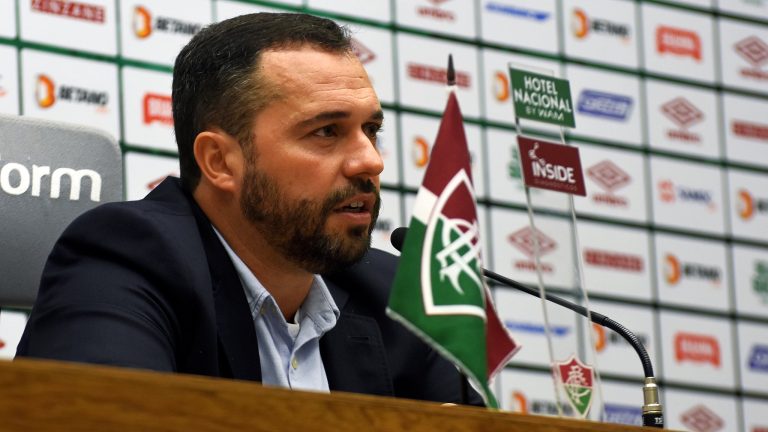Mário Bittencourt, President of Fluminense, is outspoken against synthetic football fields in Brazil. He challenges the notion that these fields save money and points to Botafogo’s performance downturn and their stadium’s use for concerts.
Mário argues, “If you have a football club and you can’t maintain a grass pitch, you can’t have a club.” He sees a club’s choice to focus on winning titles as superior to hosting non-sporting events.
READ MORE
+ + Gabriel Pirani believes in the evolution of the Brazilian team in the Pre-Olympic
+ + Neymar’s Al-Hilal breaks records and surpasses Barça, Real Madrid and PSG’s biggest spending seasons
+ + Inter Miami vs Al Nassr: date, time, how to watch the Riyadh Season Cup
Since Mário’s tenure beginning in mid-2019, Fluminense has secured three titles. He criticizes Botafogo for its synthetic turf and for prioritizing concerts, which he believes affects game outcomes. Mário acknowledges synthetic turf’s usefulness in training but insists it alters the game dynamics, saying,
“Synthetic changes the game. The player becomes slower, because the boot holds more. The bounce of the ball is different. Ah, but it’s approved by FIFA”, but it’s not necessarily good”
He expresses worry about Maracanã potentially getting synthetic turf. Citing health concerns, Mário calls for scientific research, stressing, “There is the issue of the material that affects the health of athletes.” He believes synthetic turf creates competition imbalances, arguing it’s unfair. He shares,
“They say that synthetic reduces the cost. But if you have a football club and you can’t maintain a grass pitch, you can’t have a club. If not, it becomes a concert venue. There are people who prefer to do five shows. And that’s okay. But I prefer to win titles”
Mário notes that teams economize with synthetic turf, but observes that clubs, including Fluminense, sometimes strategically rest their main players against teams with synthetic fields. He gives these reasons:
“In 80% of games, it is natural grass. It brings a modification. I will discuss sports results. Every club that starts playing on synthetic turf, in the first two or three years, has a very different result at home. You can search there. Because there is a natural difficulty in playing there”
He further discusses the difficulties of maintaining natural grass, especially when finances drive the choice of synthetic. Mário points out that fields fare better with fewer teams using them and can improve with adequate rest. He questions the widespread adoption of synthetic fields, given their cheapness and durability, concluding, “No major league in the world plays on synthetic fields.”
His stance highlights the complexities of choosing between natural and synthetic turf in football, emphasizing the balance between financial practicality and preserving the traditional aspects of the game.



